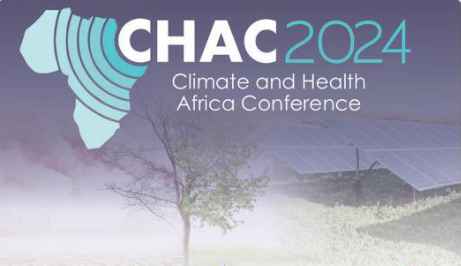The Climate and Health Africa Conference (CHAC 2024), set for October 29-31 in Harare, Zimbabwe, marks a major milestone in bringing Africa’s climate and health challenges to the forefront of global discourse. This inaugural event gathers over 400 delegates, including policymakers, health experts, and researchers from Africa’s 54 nations, all dedicated to forging a sustainable future for health under the stresses of climate change.
Purpose and Vision of CHAC 2024
CHAC 2024 is driven by an urgent mission: to address the growing health risks that climate change imposes on Africa. With the continent already bearing a significant load of climate-sensitive diseases and facing constraints in adaptive capacity, this conference is a call for action and innovation. CHAC 2024 aims to enhance climate resilience across Africa’s health systems by sharing insights, new research, and best practices. By translating research into action, the conference supports the integration of scientific evidence into both policy and adaptation strategies.
Central Themes of the Conference
The sessions at CHAC 2024 revolve around pivotal themes, designed to address Africa’s unique needs and opportunities in health and climate:
- Understanding Health Impacts of Climate Change: Unpacking how environmental shifts are affecting public health across the continent.
- Fostering Equitable Research in Climate and Health: Building a research framework that prioritizes Africa’s needs and highlights its contributions.
- Driving Policy from Research: Transforming scientific findings into actionable policies to safeguard communities.
- Redefining Africa’s Health Strategies: Shaping new, context-specific Approaches to health that Factor in the realities of Climate Challenges.
Anticipated Outcomes of CHAC 2024
The conference aims to make a lasting impact, with outcomes that include:
- Scientific Publications for knowledge sharing and policy development.
- African Health and Climate Declaration, a guiding document for action and accountability.
- Comprehensive Action Plans to translate discussions into real-world solutions.
- New Partnerships and Funding Opportunities to drive long-term projects across the continent.
Africa’s Unique Climate Challenges
Africa faces an acute burden from climate change, including droughts, floods, and cyclones, despite contributing only 3% of global carbon emissions. These effects threaten food security for over 800 million people, with economic losses due to climate impacts ranging from $289 billion to $440 billion annually, according to the African Development Bank. This disparity underscores the urgency of enhancing Africa’s resilience to climate change.
Health and Climate Change
Research highlights the many ways climate change exacerbates health issues in Africa. Droughts in regions like the Horn of Africa and the Sahel strain healthcare systems and threaten access to essential care. In Eswatini, for example, the intersection of climate change and health crises, such as HIV, reveals how environmental changes disrupt treatment availability and community health outcomes.
CHANCE: A Network for Collaboration
Running alongside CHAC 2024, the Climate and Health Africa Network for Collaboration and Engagement (CHANCE) fosters collaboration across disciplines and borders. CHANCE is a dedicated platform for:
- Knowledge Exchange to promote learning and awareness.
- Research Collaboration to boost efforts in climate-health studies.
- Advocacy for Evidence-Based Policies to ensure African voices shape global climate action.
- Access to Climate Financing for projects that enhance resilience.
Hosted by Leading Health and Climate Advocates
CHAC 2024 is organized by the Centre for Sexual Health and HIV/AIDS Research Zimbabwe (CeSHHAR) in partnership with Zimbabwe’s Ministry of Environment, Climate and Wildlife and the Ministry of Health and Childcare. With a theme of “Cultivating Resilience in Health,” this conference emphasizes the importance of unified and inclusive strategies for addressing climate change impacts on health. Leading scientists from around the globe will join to share insights, ensuring Africa’s voices and innovations play a central role in shaping global health adaptation strategies.




